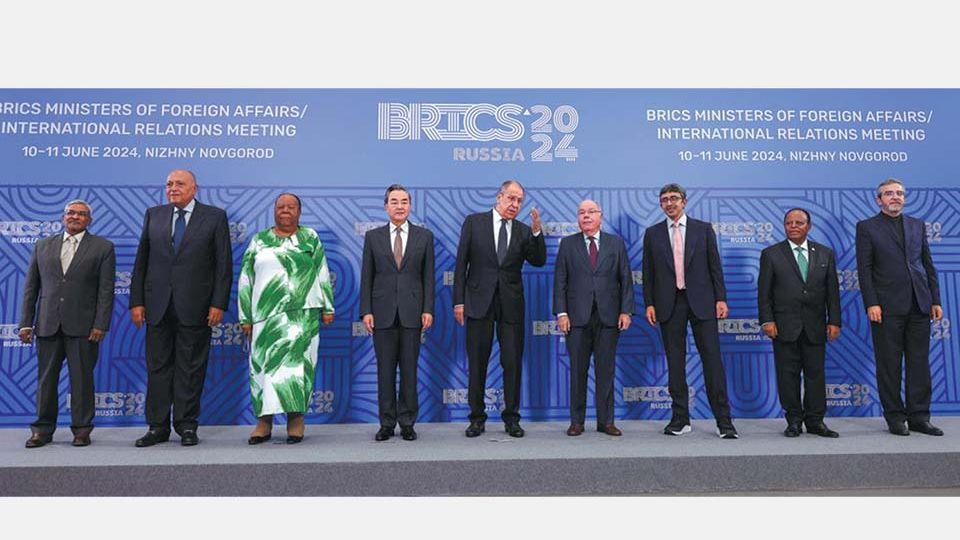June 13, 2024
BEIJING – China has called on BRICS to make new and greater efforts to promote multilateralism, peace and globalization, as observers expect the grouping with an expanded membership to play a larger role in global governance.
“The ‘greater BRICS’ should take on greater responsibility and make greater achievements,” Foreign Minister Wang Yi said on Monday while addressing the BRICS Foreign Ministers’ Meeting in Nizhny Novgorod, Russia.
This was the first BRICS Foreign Ministers’ Meeting to be held since the grouping’s historic membership expansion in August, which brought in Egypt, Ethiopia, Iran, Saudi Arabia and the United Arab Emirates as new member countries.
Since the expansion, BRICS has become more influential in the world economy and international affairs, such as in dealing with the Palestine-Israel issue, Wang said, adding that cooperation among member countries has deepened with a remarkable speed.
The foreign minister urged the organization to give full play to the strategic significance brought by the membership expansion and turn itself into a “new type of multilateral cooperation mechanism” that is based on emerging markets and developing countries, while staying open to the whole world.
Wang also called on the grouping to push back against unilateralism, warning that “a certain major country is returning to the Cold War mentality, forming a geopolitical clique, openly resisting resolutions of the United Nations Security Council and undermining the authority of multilateral mechanisms”.
The world is facing “competition between the force promoting multipolarization and that maintaining the unipolar hegemony, and clashes between the approach of economic globalization and that of de-globalization”, the foreign minister said, adding that BRICS countries should “make the right choice” by continuing to uphold multilateralism.
Speaking at the meeting that came amid the ongoing Gaza conflict and the Ukraine crisis, Wang emphasized the importance of talks for political resolution of the issues.
BRICS should promote an immediate, comprehensive and sustainable cease-fire in Gaza, while supporting Palestine in becoming a full member of the UN and getting the two-state solution back on track, he said.
Speaking about the Ukraine crisis, Wang said BRICS should stay independent, objective and fair to facilitate an international consensus for peace and oppose any “new Cold War”.
Wang Lei, director of the Center for BRICS Cooperation Studies at Beijing Normal University, said that with the membership expansion, BRICS will play an increasingly important role in the world’s upholding of true multilateralism.
The “greater BRICS” will contribute more to maintaining the international system with the UN at the core, make more efforts for global governance reform, including that of the Group of Twenty and the World Trade Organization, and play a greater role in addressing hot-spot issues, the researcher said.
Calls made at the BRICS extraordinary virtual summit on the Palestine-Israel issue in November have received more and more recognition from the world, Wang Lei said, adding that the six-point consensus between China and Brazil on the political settlement of the Ukraine crisis issued in May is gaining more international support.
BRICS now sees potential for further expanding its membership, as Xinhua News Agency quoted Kremlin spokesman Dmitry Peskov as saying on June 4 that Russia welcomes Turkiye’s interest in joining the organization.
The remark came after Thailand voiced its intention to join the grouping in late May.
More and more countries are drawn to BRICS for its open, inclusive and fair cooperation, which is in contrast to certain country’s approach of “a small yard with high fences”, Wang Lei said.
In addition, facing a world with tumult and changes, these countries have recognized BRICS’ contribution to global growth and stability, and thus are choosing to join the grouping, the researcher added.


